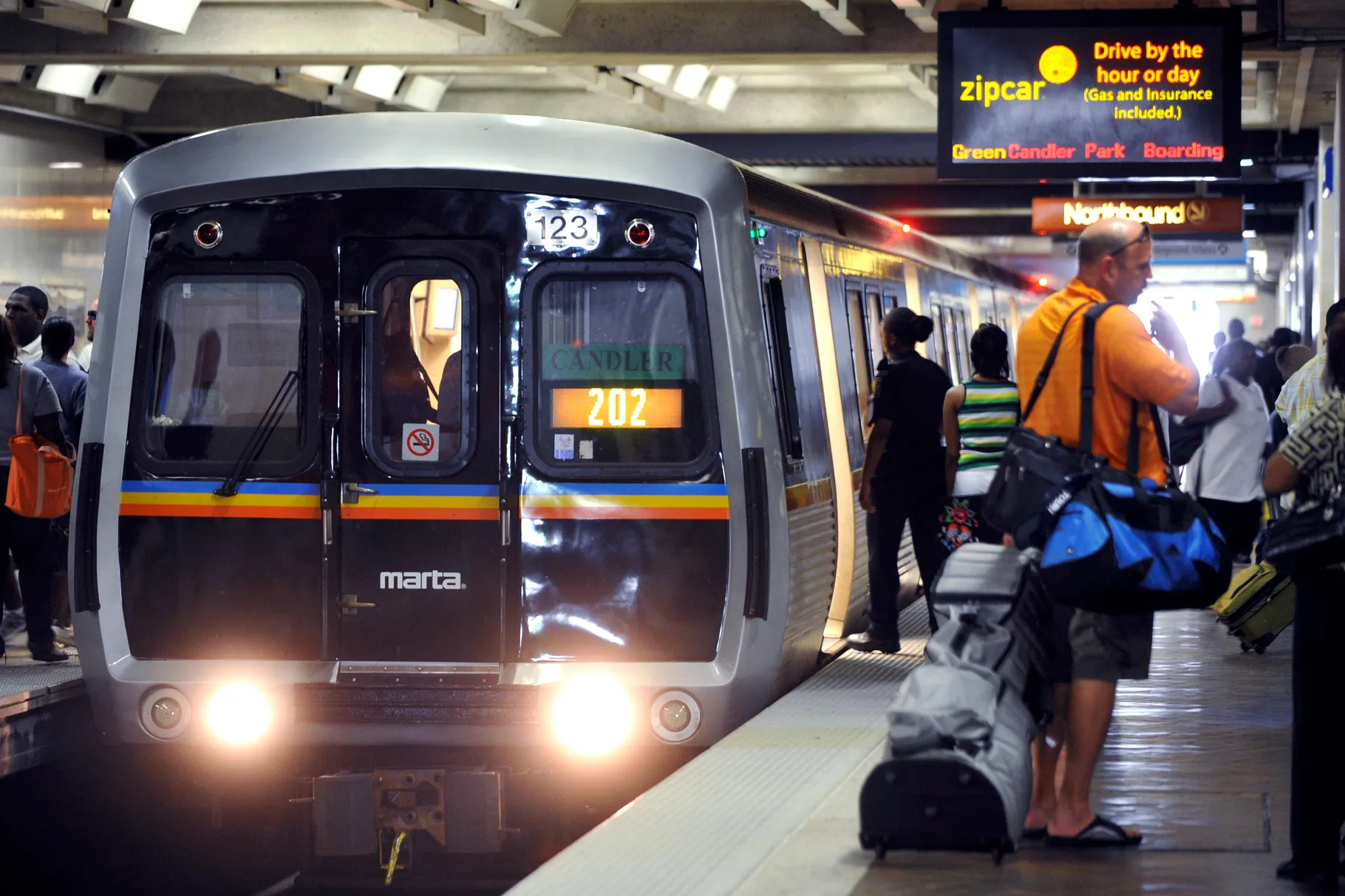The Metro Atlanta region is booming and with it, so is the demand for more mobility options. According to a 2022 global traffic report from Inrix, Atlanta drivers lost 74 hours stuck in traffic. This poses an issue not just for commuting employees, but also for employers trying to get their workers to come to the workplace. In a 2022 survey of commuters in Metro Atlanta, 60% of employees reported their commute as a main factor impacting their willingness to return to the jobsite. Offering a commuter benefits program is a great way businesses can cater to a critical need within their workforce, attract and retain talent, and stay competitive in their industry. Read on for examples of basic commuter benefits employers should have in place to support employees taking various modes of travel.
Transit
Employer-subsidized transit passes are a commuter solution that can help attract and retain employees looking for companies that prioritize sustainability. According to a 2019 survey by Fast Company, nearly 40% of millennials have chosen a job because of company sustainability. Public transit is a much cleaner commute than driving alone by car as it significantly reduces the amount of CO2 emissions in the air. Employer-subsidized passes are also a great way for employers to save money on parking costs by expanding transportation access to employees. Transportation Management Associations (TMAs) help tailor and localize TDM planning and services in employment centers around the region. According to the ARC’s 2023 Regional TDM Inventory, 72% of commuters had access to commute services within TMA areas. MARTA, Xpress, CobbLinc, and Gwinnett County Transit serve more than 13 counties within the region, with additional operators providing hyper-local microtransit and private shuttle options for first-and-last mile connections. Subsidized transit passes can make it more affordable and convenient for employees to take public transportation, which helps reduce the number of employees who drive to work.
Active commutes
Employees who live within a shorter distance from the workplace, or simply want to get in a convenient workout on the way to the job, may be open to biking or walking to work. By encouraging employees to take an active commute when possible, employers can save on healthcare costs. According to the World Health Organization, active commuting is associated with about a 10% decrease in risk for cardiovascular disease, a 30% decrease in type 2 diabetes risk, and a 10% decrease in mortality risk. Another way active commutes help workers stay healthy is by reducing the amount of cars on the road, which improves the quality of the air we breathe. Connecting employees to opportunities to earn incentives for their active commutes, such as commuter reward apps or programs, will help keep them motivated to choose active commutes. There are also ways employers can make active commuting to work more convenient, like installing a bike rack on the company premises to accommodate employees who ride to work. An on-site locker room and shower can also support those who need somewhere to store personal items and freshen up after a commute.
Rideshare
Academic research by the National Library of Medicine found that longer commute times were associated with increased strain and poorer mental health, which can impact productivity and morale among company teams. A company carpool or rideshare program can help reduce commuter stress for workers. The more employees carpool, the less traffic congestion on the road to keep them from having a relaxing commute on the way to the jobsite. Carpooling can also help cut down on employee tardiness caused by the unpredictability of traffic delays. Employers can save money on parking by implementing a company rideshare program too. Carpooling helps get employees to work without a car, especially where transit is not available, which will reduce workforce parking demand. Alternatively, employers can offer priority parking for vehicles used in carpools and a monthly incentive, such as a gas card for carpool drivers, to encourage employees to use this mode of transportation if possible.
To learn more about GCO’s commuter programs and how we can help customize a free program for your workplace, visit https://gacommuteoptions.com/employers/work-with-us/.
